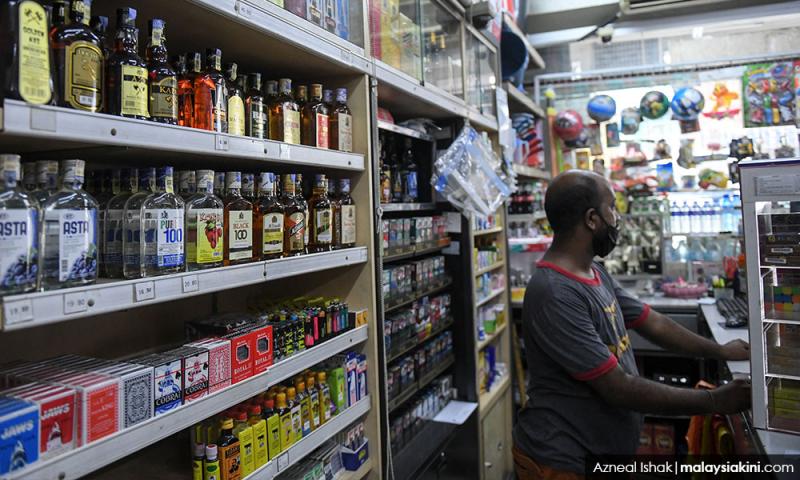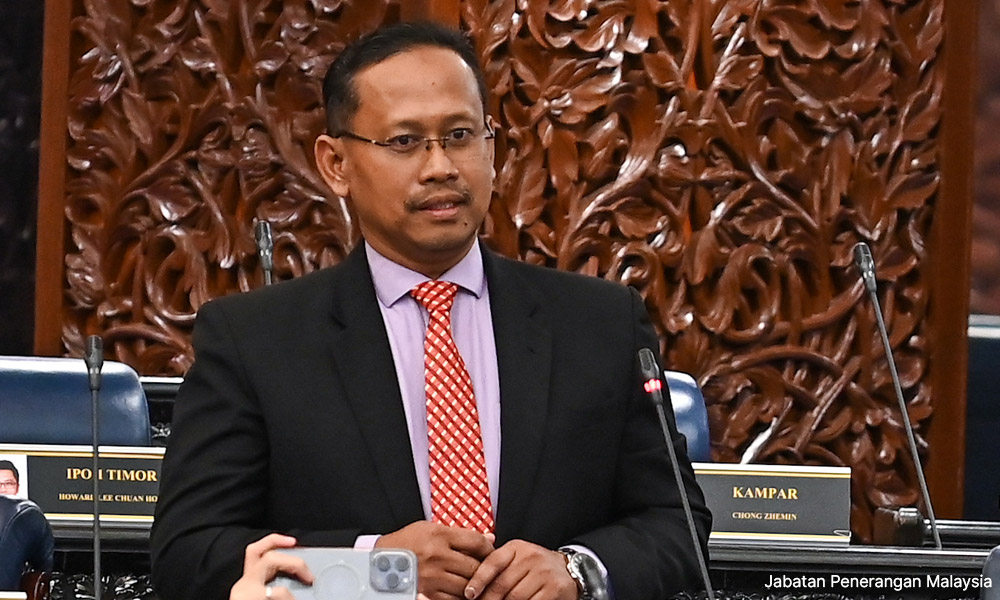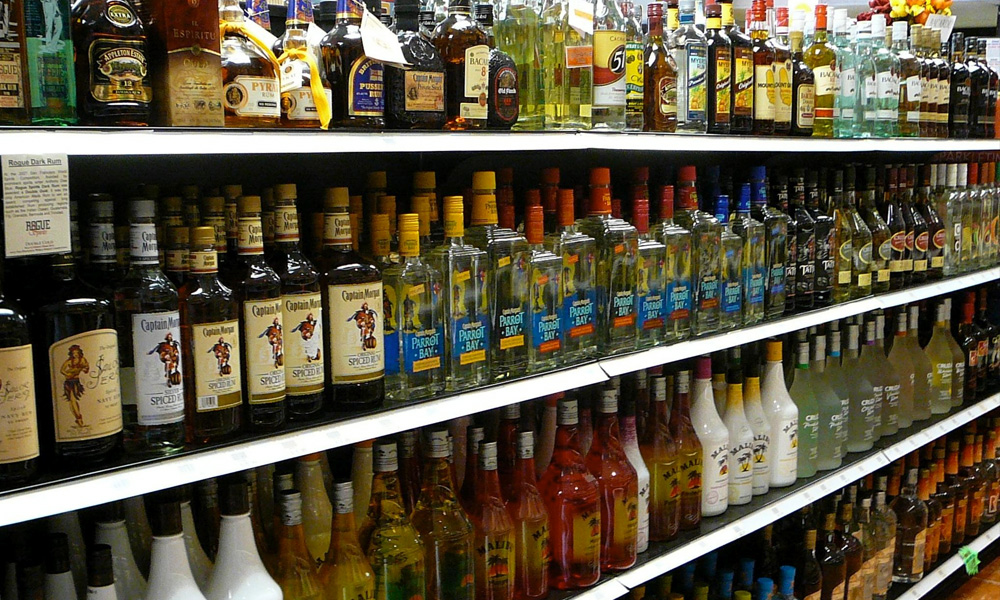
Mariam Mokhtar
Published: Mar 8, 2024 10:45 AM
COMMENT | Tapai is a refreshing and intoxicating traditional Malay dessert. Its commercial production supports local industries. It is 100 percent halal.
With the recent suggestion about vending machines for alcohol, will there be a similar proposal for vending machines for tapai?
The alcohol by volume content in tapai is relatively low, but it will nevertheless pass the “alcohol” test.
Will the makciks who make tapai to sell in their warungs, or Ramadan bazaars require a permit to sell food items with a high alcoholic content?
You may recall that in 2019, the erstwhile minister in the Prime Minister’s Department Mujahid Yusof Rawa warned beer manufacturers, in Malaysia, that producing alcohol-free beer would confuse Muslims and make them think that they could consume the drink.
He forbade Muslims from drinking the alcohol-free beer, because “it was made with the same process as alcohol”.
Some Muslim MPs and the Islamic Development Department (Jakim) are in danger of cultivating a new breed of Muslims in Malaysia, called the “snowflake” generation.
Just when we thought that politicians had stopped treating the Malays like fools, along came Pulai MP Suhaizan Kaiat, to dash our hopes.
Showing his concern for Muslim workers in convenience store chains handling alcoholic products, Suhaizan urged the government to introduce new mechanisms whereby they could be excluded from business transactions involving alcohol.
He suggested that Jakim create new guidelines for alcohol to be sold through vending machines.
‘New mechanisms’
Instead of humouring the Pulai lawmaker, Deputy Minister in the Prime Minister’s Department (Religious Affairs) Zulkifli Hasan should have come down hard on Suhaizan and told him about the consequences of such a drastic move.
Published: Mar 8, 2024 10:45 AM
COMMENT | Tapai is a refreshing and intoxicating traditional Malay dessert. Its commercial production supports local industries. It is 100 percent halal.
With the recent suggestion about vending machines for alcohol, will there be a similar proposal for vending machines for tapai?
The alcohol by volume content in tapai is relatively low, but it will nevertheless pass the “alcohol” test.
Will the makciks who make tapai to sell in their warungs, or Ramadan bazaars require a permit to sell food items with a high alcoholic content?
You may recall that in 2019, the erstwhile minister in the Prime Minister’s Department Mujahid Yusof Rawa warned beer manufacturers, in Malaysia, that producing alcohol-free beer would confuse Muslims and make them think that they could consume the drink.
He forbade Muslims from drinking the alcohol-free beer, because “it was made with the same process as alcohol”.
Some Muslim MPs and the Islamic Development Department (Jakim) are in danger of cultivating a new breed of Muslims in Malaysia, called the “snowflake” generation.
Just when we thought that politicians had stopped treating the Malays like fools, along came Pulai MP Suhaizan Kaiat, to dash our hopes.
Showing his concern for Muslim workers in convenience store chains handling alcoholic products, Suhaizan urged the government to introduce new mechanisms whereby they could be excluded from business transactions involving alcohol.
He suggested that Jakim create new guidelines for alcohol to be sold through vending machines.
‘New mechanisms’
Instead of humouring the Pulai lawmaker, Deputy Minister in the Prime Minister’s Department (Religious Affairs) Zulkifli Hasan should have come down hard on Suhaizan and told him about the consequences of such a drastic move.

Pulai MP Suhaizan Kaiat
In this day and age, jobs are difficult enough to come by, so why make it more difficult for the Malay worker? Why phase him out of the employment market?
Why make it difficult for a business owner to employ a Malay worker?
The people in Jakim, as well as Muslim politicians and leaders, are at risk of creating a new breed of Muslims in Malaysia who are afraid to handle alcohol. Others will not be so kind but will claim that the workers are perhaps “workshy”.
The convenience store worker is not being asked to sample or taste the brew or spirit. He is only asked to sell the product which is already packaged either in a can, a carton or a bottle.
All he has to do is take it off the shelves, process it at the checkout and place it in the carrier bag.
Politicians have huge egos. They also have this mistaken belief that the more complex the solution to a problem, the more intelligent he probably looks.
There is no need to introduce “new mechanisms” to stop the Muslim from handling alcohol. The solution is so simple. If it goes against the worker’s religious principles, then all he has to do is resign and not seek employment in a company that sells alcoholic or haram items.
Does Suhaizan realise how silly he looks? Is he just political point-scoring and eager to look as if he is protecting the interests of the Malay-Muslim community?
How far will it go?
The alcohol is produced either in the brewery or distillery. Before the supermarket employee gets to handle the bottle of whisky or the can of beer, there are other groups of workers involved in the process.
Some employees are involved in the bottling process. Others pack them into crates or load them onto the lorries. Will drivers who are Muslim refuse to drive the lorries?
In this day and age, jobs are difficult enough to come by, so why make it more difficult for the Malay worker? Why phase him out of the employment market?
Why make it difficult for a business owner to employ a Malay worker?
The people in Jakim, as well as Muslim politicians and leaders, are at risk of creating a new breed of Muslims in Malaysia who are afraid to handle alcohol. Others will not be so kind but will claim that the workers are perhaps “workshy”.
The convenience store worker is not being asked to sample or taste the brew or spirit. He is only asked to sell the product which is already packaged either in a can, a carton or a bottle.
All he has to do is take it off the shelves, process it at the checkout and place it in the carrier bag.
Politicians have huge egos. They also have this mistaken belief that the more complex the solution to a problem, the more intelligent he probably looks.
There is no need to introduce “new mechanisms” to stop the Muslim from handling alcohol. The solution is so simple. If it goes against the worker’s religious principles, then all he has to do is resign and not seek employment in a company that sells alcoholic or haram items.
Does Suhaizan realise how silly he looks? Is he just political point-scoring and eager to look as if he is protecting the interests of the Malay-Muslim community?
How far will it go?
The alcohol is produced either in the brewery or distillery. Before the supermarket employee gets to handle the bottle of whisky or the can of beer, there are other groups of workers involved in the process.
Some employees are involved in the bottling process. Others pack them into crates or load them onto the lorries. Will drivers who are Muslim refuse to drive the lorries?

If the alcohol is exported, how will Suhaizan accommodate the Muslim port workers, forklift truck operators, container lorry drivers and Customs officials?
If alcohol is sold in a duty-free outlet, does the MP want the Muslim duty-free shop assistant and check-out lady to stop handling the product?
Empty whisky and beer bottles or cans will also be a problem. Should the Muslim rubbish bin collector refuse to collect these?
Why should Suhaizan stop at the convenience store? He could demand that Muslim cabin crew stop offering drinks to passengers who ask for an alcoholic beverage.
If today it is alcohol, what will it be tomorrow? Will haram food items like spam or canned luncheon meat be on the list of food items which Malay workers cannot handle? What about controversial books?
The recent deluge of syariah-compliant businesses and provision of halal items has taken Malaysia by storm. We should be in the Guinness Book of Records for being the best Muslims in the world.
We have halal water, halal lifts, halal trolleys, halal eggs, halal vegetables, halal wi-fi, and halal smartphones; but the syariah-compliant airline, Rayani Air, was grounded because the company was allegedly not financially nor technically viable.
Does the increase in syariah-compliant businesses show that Malays, in Malaysia, are more pious than the generations of Muslims before them? I think not.
How strong is a person’s faith in Islam, if he is easily confused by non-alcoholic beer, or that he feels threatened and has committed a sin because he “handled” the alcoholic item even if he did not consume nor physically touch the product?
The most dangerous threat to the government and the ulama class is not an invading army, the communists, a contagious disease, or nuclear war.
It is the thinking Malay.
MARIAM MOKHTAR is a defender of the truth, the admiral-general of the Green Bean Army, and the president of the Perak Liberation Organisation (PLO). Blog, X.

No comments:
Post a Comment